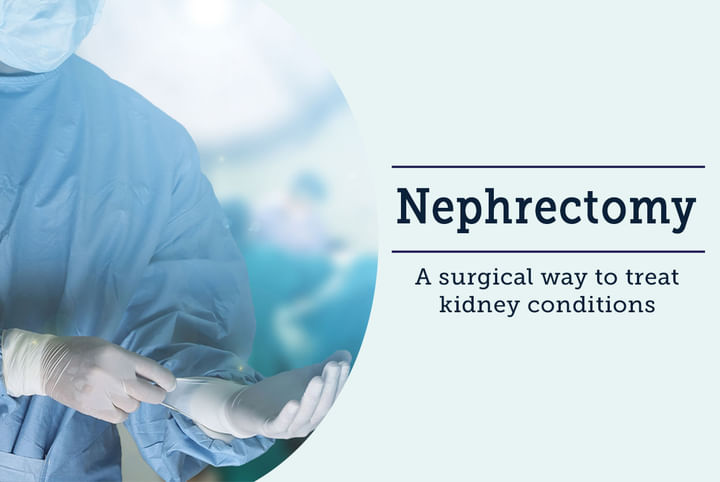Nephrectomy - A Surgical Way To Treat Kidney Conditions!
Nephrectomy is a surgical procedure where the kidney is removed. It can be just the one kidney or both. This procedure is resorted to in cases of kidney cancer and other kidney problems. It is also done during kidney transplantation where a healthy kidney is removed from a donor.
Types of nephrectomy
Nephrectomy is of two types – partial and radical.
In a partial nephrectomy, only the diseased parts of the kidney are removed. In the radical variant, the entire kidney along with the ureter, adrenal gland and the surrounding fatty tissues are removed. If both the kidneys are removed then it is called bilateral nephrectomy.
For donors in kidney transplant, the procedure is called donor nephrectomy.
How is it done?
There are two ways in which this surgery can be done – laparoscopic and open.
Laparoscopic method
In this method, a laparoscope is inserted from a small incision in the abdominal wall. Once the laparoscope is in place, the kidney is removed through a small incision made by the doctor.
This procedure is carried out under general anaesthesia. The advantages of this method are – quicker recovery, a short stay at the hospital and lesser chances of complications.
Open nephrectomy
In this method, the doctor makes a relatively larger cut in the abdomen to reach the kidney. Once the kidney is removed then the incision is sutured.
Recovery
Once the surgery is complete, you will be taken to recovery where your vitals will be monitored. A urinary catheter will be attached to your bladder to drain away urine.
You may feel pain in the incision area for which pain medications will be given. You will also be asked to do breathing exercises to protect yourself from pneumonia. You have to avoid stressful activities like heavy lifting for 6 weeks once you return home from surgery.
You may also need to undergo tests like urinalysis, kidney function tests and blood pressure checks on a regular basis to detect complications after the surgery.


+1.svg)
